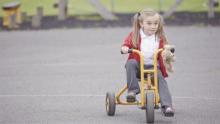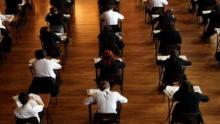Investigating the Amplification of Working Memory Using Computer and its Effectiveness on Recovering the Reading Function and Accuracy in Tehran’s Dyslexic Students at Primary Level
Saeedeh Mo'zami Goudarzi1, M.A.;
Ali Arabani Dana2;M.A, NouraliFarokhi3, Ph.D; Koroush Goudarzi4, Ph.D.
Abstract
Objective: This study investigates the use of amplification of working memory using computer in recovering the reading functionand Accuracy in Tehran’s dyslexic students at primary level. Method: The study is a semi-experimental research with pre-test and post test. 30 students were chosen randomly among 48 dyslexic students who studied in learning disability governmental centers of Tehran. They were divided randomly in two groups of control and trial (15 students for each group). The dyslexia test of Kormi Noori and Moradi and also Tehran-Stanford-Bine kamkari intelligence scale was used. The obtained data was analyzed using statistical method of Covariance. Results: Results showed that amplifying the working memory using computer improves the reading function and accuracy of dyslexic students. Conclusion: It can be said that working memory has an important and essential role in reading function. Deficiency of working memory leads to weakness in reading function of students with learning disability and dyslexia.
Keywords: Working Memory, Reading Function, Learning Disability, Dyslexic Student
Journal of Exceptional Children (1394).vol 15, No 3 (57): 19-30.
Impact of Phonological Working Memory Training on Increasing Mean Length of Utterance in Children with Special Language Impairment
RoghayehAsadi Gandomani,1 M.A; Hamid Alizadeh2, Ph.D; Ali Arabani Dana3, M.A
Abstract
Objective: The objective of this research is to develop a phonological working memory intervention program (PWMIP) and to survey its effects on increasing mean length of utterance as a language development criterion. Method: this research was conducted by single subject method. The sample includes 4 children with specific language impairment. The sample was selected after intellectual, auditory, motor tests for participation in interventional program.The mean lengths of utterance of the sample were measured 3 times in the base line and 5 times in treatment period and changes were written down. They passed 10 sessions training. Results: The results showed that difference in mean length of utterance before and after of training were significant. Conclusion: It is reasonable to draw a conclusion that PWMIP can be used as an effective treatment strategy to decrease language difficulties of children with specific language impairment.
Key Words: phonological working memory, specific language impairment, mean length of utterance
Iranian Journal of Exceptional Children (1392).vol 13, No 1 (47): 15-24.
The Effect of Cognitive Computer Games on Working Memory, Attention and Cognitive Flexibility in Students with Attention Deficit/Hyperactivity Disorder
Akbar Abdi1, MA, Ali Arabani Dana2,M.A,Javad Hatami3, Ph.D, Akram Parand4, Ph.D
Abstract
Objective: The present study examines the impact of cognitive computer games on working memory, attention and cognitive flexibility among students attention deficit/hyperactivity disorder (ADHD). Method: This study is a quasi-experimental (pretest, posttest control group design). In this study 20 students whom were recognized as ADHD based on Conner's questionnaire clinical interview, and CSI4 test, were chosen and after matching them based on IQ and educational development evaluation. Then, they were assigned as two experimental group (10 students) and control group (10 students). The data were analyzed by one-way ANOVA, Leavene test and Covariance. Results: The results showed a significant difference between the two groups in working memory, attention and cognitive flexibility. Conclusion: Cognitive computer games could improve working memory, attention and cognitive flexibility in students with ADHD. These games lead to the shortening of reaction time and the improvement of information analysis skills. They also increased mental flexibility, processing speed, working memory.
Keywords: Cognitive computer games, working memory, attention, cognitive flexibility.
Journal of Exceptional Children (1393).vol 14, No 1 (51): 19-34.
The Text Analysis of Persian Textbooks for Intellectually- Disabled Students Based onHalliday and Hasan’s Cohesion Model
Ali Arabani Dana,M.A1, EbrahimRezapour Ph.D2, KyomarsJahangardi Ph.D3
Abstract
Objective: The aim of this study is to investigate the occurrence of lexical cohesion devices inFarsi Textbooks for intellectually- disabled students.Method: The method is based on the model proposed by Halliday and Hasan. The data is taken from Persian Textbooks for intellectually- disabled students. The elementary school for intellectually- disabled students consists of six grades and for each grade, one Persian textbook is designed. SPSS software is used for analysing data and to answer the study questions, covariance test is used.Results: There are some changes in lexical cohesive devices with the increasing level grade. These changes have had significant differences.Conclusion: A change that occurred with increasing level grade of mentally-disabled students is not significant for the same item, superordinate and collocation but it is significant for the frequency of synonymy and general words. In other words, frequency of synonymy and general words increases with increasing level grade but the frequency of same item, superordinate and collocation has no meaningful changes.
Keywords:Text analysis, Persian textbooks, Intellectually disabled students, Cohesion model, Functional approach
Journal of Exceptional Children (1395).vol 16, No 1 (59): 65-76.
.
Please refer to the research institute's website for full coverage
http://rie.ir/.




















